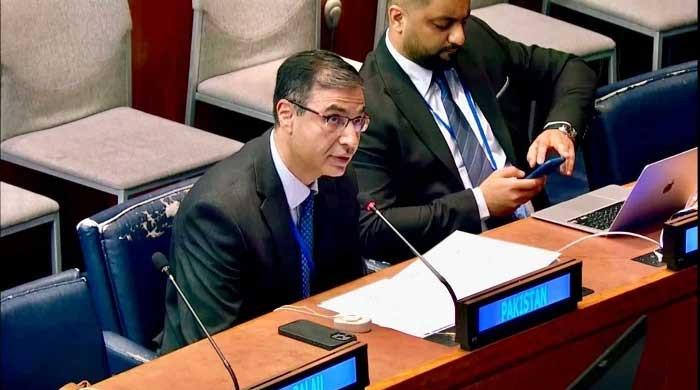
Pakistan Condemns India's Human Rights Violations in IIOJK: A Detailed Overview
On October 14, 2025, Pakistan delivered a powerful statement at the United Nations, addressing what it terms as India's systematic human rights violations in the Indian-administered region of Jammu and Kashmir (IIOJK). Asif Khan, a diplomat representing Pakistan's Permanent Mission to the UN, articulated these concerns during the 4th Committee Meeting on Decolonization Items, emphasizing the urgency and significance of the situation.
Background of the Kashmir Conflict
The Kashmir conflict has been a longstanding territorial dispute between India and Pakistan since the partition of British India in 1947. The region of Jammu and Kashmir has witnessed violence, political instability, and a humanitarian crisis over the decades. Both countries claim the region in full, yet each administers parts of it. The situation has escalated significantly since India's revocation of Article 370 in August 2019, which granted special status to Jammu and Kashmir. This move led to increased military presence and restrictions on civil liberties in the region.
Pakistan's Position on Human Rights Violations
In his address, Asif Khan emphasized that the situation in IIOJK represents not only a political issue but also a profound humanitarian crisis. He condemned India's alleged human rights abuses, which include arbitrary detentions, torture, extrajudicial killings, and widespread censorship. According to Pakistan, these actions are part of a broader strategy to suppress dissent and silence the voices of Kashmiris who seek their right to self-determination.
Key Points Raised by Pakistan
1. Systematic Violations: Pakistan highlighted the systematic nature of the violations occurring in IIOJK, arguing that they reflect a deliberate policy by the Indian government to undermine the rights of the Kashmiri people.
2. International Attention: The call for international attention was made, urging global powers and organizations to recognize and address these violations. Pakistan stressed the need for an independent investigation into the reported abuses.
3. UN Resolutions: The diplomat referred to various United Nations resolutions that call for a plebiscite in Kashmir, reaffirming that the Kashmiri people should decide their own future.
4. Humanitarian Crisis: With increasing reports of violence and repression, Pakistan underscored the urgent humanitarian crisis unfolding in the region, which requires immediate intervention from the international community.
The Role of the International Community
The international community plays a crucial role in addressing the Kashmir issue. Pakistan's appeal to the UN reflects a broader call for intervention and support from global powers. The need for mediation and resolution is critical, given the historical context and ongoing tensions between India and Pakistan.
Conclusion
Pakistan's denunciation of India's alleged human rights violations in IIOJK highlights the ongoing complexities of the Kashmir conflict. The international community's response will be crucial in shaping the future of the region. As the situation continues to evolve, it remains imperative for organizations, governments, and individuals to advocate for the protection of human rights and the resolution of this protracted conflict. The call for justice and self-determination for the Kashmiri people echoes far beyond the borders of South Asia, resonating with global principles of human rights and dignity.
FAQs
#
What is IIOJK?
IIOJK stands for Indian-Occupied Jammu and Kashmir. It refers to the part of the larger Kashmir region that is administered by India. The region has been a focal point of conflict between India and Pakistan for decades.
#
Why does Pakistan focus on human rights violations in IIOJK?
Pakistan focuses on human rights violations in IIOJK to highlight what it sees as India's oppressive policies against the Kashmiri people. By raising these concerns on international platforms like the UN, Pakistan aims to garner global support and draw attention to the plight of Kashmiris.
#
What is the significance of the UN's involvement?
The United Nations has historically played a role in mediating conflicts and ensuring human rights are upheld. Its involvement in the Kashmir issue could facilitate dialogue and promote a peaceful resolution to the conflict.
#
What actions can the international community take?
The international community can take various actions, including:
- Calling for independent investigations into reported human rights abuses.
- Encouraging dialogue between India and Pakistan.
- Supporting the rights of the Kashmiri people for self-determination.
Tags
National
